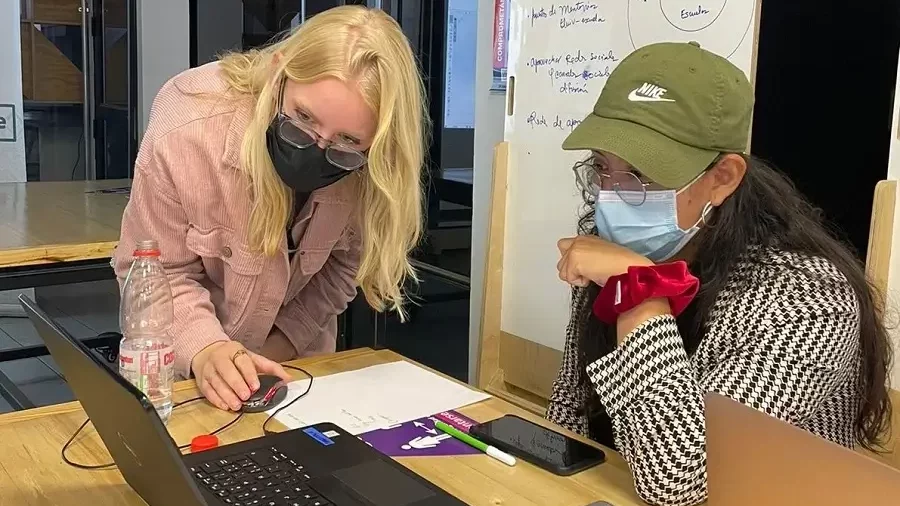[This is a two-part series to help you save and earn some extra money for your internship abroad trip. Part I has tips on saving money for your trip with your current job or cash flow. Part II includes tips on earning extra money without picking up three jobs and sacrificing your studies.]
Congratulations on making the decision to take on an internship abroad! Whether you’re doing it to gain college credit, gain work experience, or make an impact abroad, this is going to be one of the most memorable events in your life.
With the decreasing resources and scholarships available through college, however, more and more of our candidates are searching for ways to afford their program of choice. So many students will not even apply for a program this year due to doubts about getting the funds in time. It’s totally normal to have these concerns, and we’re here to help you!
If it can happen to Kristen Wiig, it can happen to all of us.
Fortunately, there are plenty of strategies for saving up for your internship that doesn’t have to involve picking up a second job during college. Saving money is a great habit of create during college, but here are some tips to help you grow that savings account to help accommodate for your program!
Tip #1: Create a Budget
Preparation is essential. Although most internship abroad programs are here to assist you ahead of time, anything can happen; flights can cancel at the last minute, transfers can be missed, and your luggage can disappear. These are things that we don’t necessarily have control over but can always prepare for.
You should save more than what you think is enough.
Wherever you create your budget spreadsheet (Google Docs or Excel are both a good start), your budget should include the basic expenses.
Program Fees
Adelante’s program costs vary depending on which city you want to travel to and how long you want to stay in your program. Check out our Pricing page for more information on this.
Your housing expenses are included in your program, whether you choose to stay in a shared apartment or with a homestay family. In some programs, your meals and laundry are also included in the program. Contact us if you have any questions about specific programs and what they have to offer.
Airfare/Transportation
Your plane ticket will probably be one of your biggest expenses for your program, but Adelante’s team is here to help you find inexpensive flights. Our social media intern searches for price drop alerts with different airlines and sends the information to our team so that we can let our candidates know. There are several websites, such as SkyScanner or JustFly, that help you search for the lowest costs possible. Airport pickup is included in your program fees, so you don’t have to worry about calling a taxi to take you to your housing.
#YoureWelcome
In major cities such as Madrid and Barcelona, buses and trains are one of the best ways to commute and travel to different areas nearby. This, of course, will cost extra, and so it’s wise to determine (once you know your housing) the best ways to your internship and to calculate a good monthly budget. This can also include extra trips that you know you’ll be taking on your free time while abroad.
Pre-departure Expenses
Visa(s), passport, health and travel insurance are some extra expenses to consider. You may need to do your research on these items, but Adelante has some free resources to help you begin. It’s very wise to do this as soon as possible to save some money and not have to deal with “rush fees.”
Please note that Adelante does not assist with Visas; however, candidates spending less than three months abroad do not need a Visa. Our team is also happy to answer any questions that we can on rules with Visas abroad.
Food
Alas, the food. For most of Adelante’s programs, it’ll be up to you to do your cooking and grocery shopping. #Adulting much?
Before your program, Adelante sends candidates a pre-departure orientation packet that will include some tips on finding food nearby and how much to expect to spend while abroad. Lonely Planet also has good resources on what to expect to spend in your city of choice.
Even if your program offers a couple of meals in your fees, you will still want to save some extra money in case you decide to go out with your new friends abroad or treat yourself to local pastries (because why wouldn’t you?).
Personal Expenses
You *do* plan to have fun while abroad, right? Then you’ll need to save some money for that as well. Some excursions are included in your program fees, and your program director can also help you with finding some of the best deals on trips to other fun spots near your city!
You’ll also want to save some money for souvenirs and presents for family, and you’ll want to prepare for some indulgences while you’re there.
#TreatYoSelf
Tip #2: Outline a Savings Plan
Once you’ve set up your ideal (and realistic) budget, you want to create a savings plan to ensure that you have the money. The total price of your trip can feel nerve-wracking, but by breaking your savings plan down by weeks instead of months, you can determine what you’ll need to save.
This may mean saving 20% percent of every paycheck or making yourself deposit $200 into your savings account each week. Stay consistent with your plan and ask friends or family to help ensure that you’re adding enough money to your savings.
There are also several apps and online programs available to help you automatically put money into your savings so that you don’t have to keep reminding yourself.
Tip #3: Minimize Your Expenses
Let’s face it. Most of us in college do not spend money as wisely as we should. The average person between the ages of 18 and 24 spend $400 a month on fast food, takeout, and dining. CAN YOU BELIEVE THAT?
Think about how many times you buy new shoes or clothes (or where you get them), or how many times you eat out with friends. Video games are also a major spending issue (unless you’re a famous YouTuber making fast cash off playing them).
If you’re serious about saving money and going abroad, perhaps now is a good time to find out where your current cash flow is going. Start shopping thrifty, track all of your expenses, and keep a weekly budget to ensure that you are saving as much as possible for your trip.
You won’t only save the money that you need, but you’ll learn great spending habits as well. Look online for apps that track your expenses from your credit cards and banks (such as Mint); that’ll help you start looking at your current habits.
Ways to Minimize Expenses:
- Cook food at home instead of eating out
- Check out student events that offer free food
- Go to Happy Hour if you want to eat out with friends
- Shop at thrift stores or clothes swap
- Use websites like Meetup to find free things to do
Or you know… keep something like this around your house.
Stay tuned for Part II, where we show you how to make some extra cash toward your program!
Interested in learning more about our internships abroad? Click HERE for more info.







